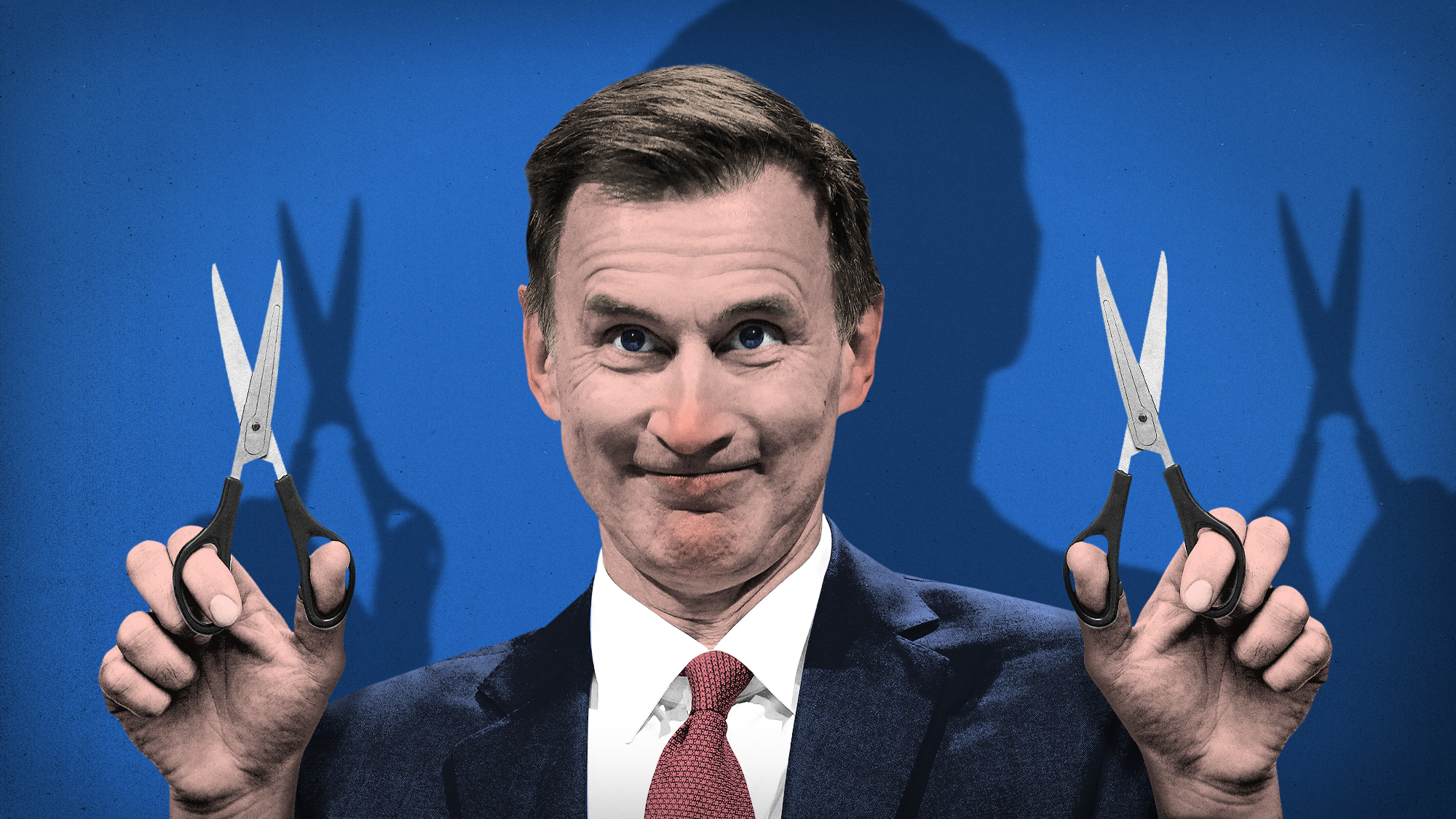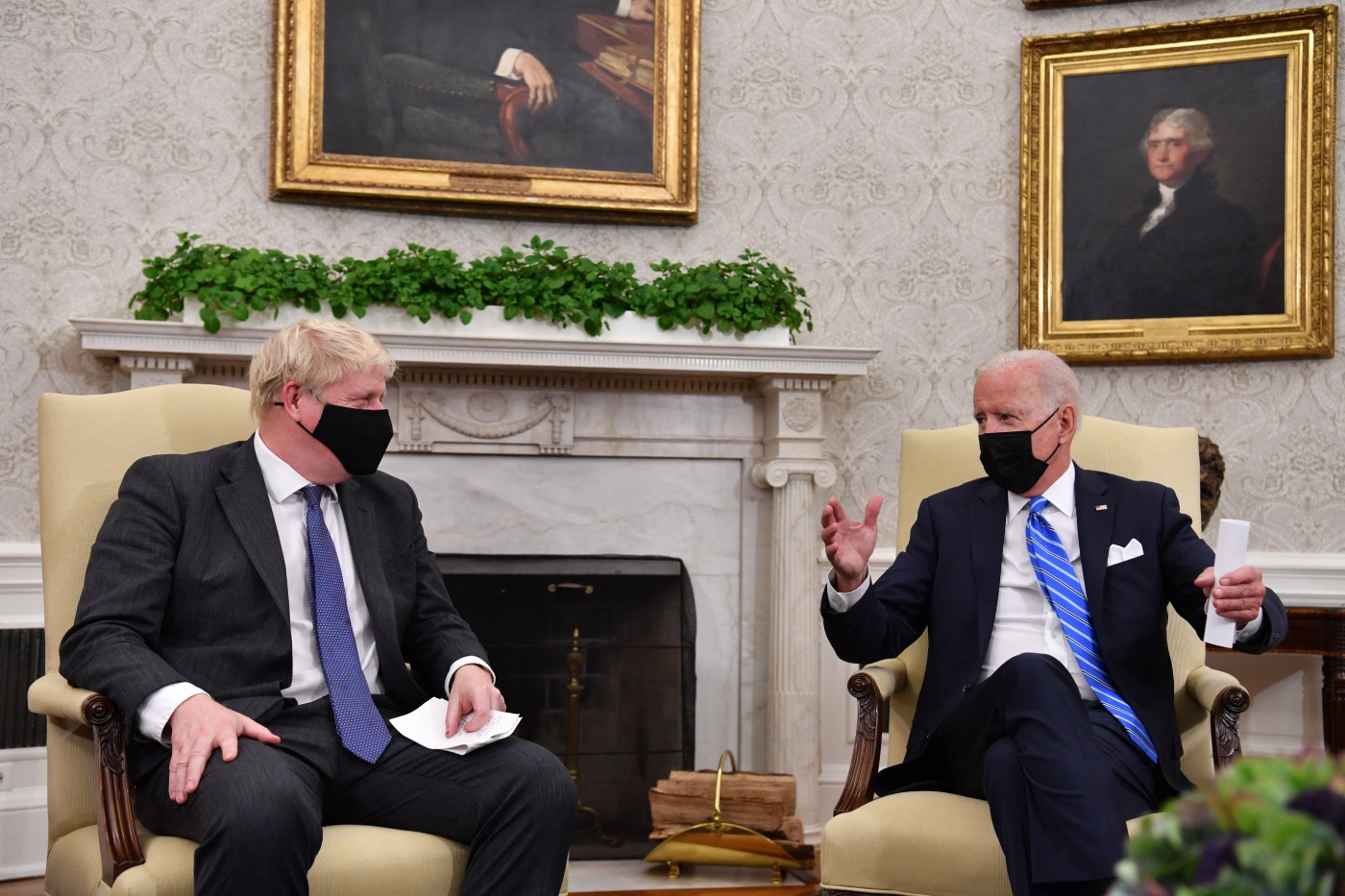Living wage rises to £7.85, but 5 million workers still underpaid
Support for the living wage increases, but campaigners say more must be done for working families

A free daily email with the biggest news stories of the day – and the best features from TheWeek.com
You are now subscribed
Your newsletter sign-up was successful
The national living wage has been raised by 20p to £7.85 per hour, benefitting up to 35,000 workers in the UK.
It is now 21 per cent higher than the national minimum wage, which was increased to £6.50 last month. The rise in the London living wage, which is higher, is expected to be announced later today.
Companies who are committed to paying their employees the living wage include Barclays, Transport for London and ITV as well as many charities and local councils. The number of businesses paying the rate has doubled in the last year, according to the BBC.
The Week
Escape your echo chamber. Get the facts behind the news, plus analysis from multiple perspectives.

Sign up for The Week's Free Newsletters
From our morning news briefing to a weekly Good News Newsletter, get the best of The Week delivered directly to your inbox.
From our morning news briefing to a weekly Good News Newsletter, get the best of The Week delivered directly to your inbox.
While the rise has been welcomed by campaigners, a new report by the accounting firm KPMG found that than one fifth of all workers in the UK earn less than the living wage. Women, young people and those working in the hospitality sector are said to be disproportionately affected.
"Far too many UK employees are stuck in the spiral of low pay, Mike Kelly, chair of the Living Wage Foundation told The Guardian. "With the cost of living still high, the squeeze on household finances remains acute, meaning that the reality for many is they are forced to live hand to mouth."
Rhys Moore, director of the foundation, said low pay continues to put pressure on public funds, as "firms that pay the minimum wage are seeing their workers’ pay topped up through the benefits system".
What is the living wage?
A free daily email with the biggest news stories of the day – and the best features from TheWeek.com
The living wage was introduced in the last decade after a campaign to help families who were struggling to make ends meet despite working two or more minimum wage jobs. It takes into account the average costs of housing, council tax, transport and food. Unlike the minimum wage, the living wage has no legal force. It is paid by employers on a voluntary basis and is a recognised sign of good employment practice. The national living wage has been set annually by the Centre for Research in Social Policy at Loughborough University since 2008, while the London living wage has been set each year by the Greater London Authority since 2005.
The living wage report:
Earlier this year, the Living Wage Commissionled an inquiry into the future of the living wage. The commission wants to see the gradual introduction of a living wage in sectors that can afford it and believes this could be tackled without any damaging economic consequences. Accountancy, consultancy, banking and construction firms could afford to pay the living wage as it would add less than 0.5 per cent to their pay bills, it says. Raising the pay of 600,000 private sector employees to the living wage would in turn raise tax revenues and reduce in-work benefits, allowing a further 500,000 public sector workers to be paid the living wage. However, the commission rejects the idea of imposing a living wage through legislation, acknowledging that the retail sector, hospitality sector and many small companies could not afford it. It did suggest that ministers could force companies to declare whether they pay a living wage to make consumer boycotts easier to organise.
Will the government go for it?
Business secretary Vince Cable has said that the government supports businesses that voluntarily pay the living wage "where it is affordable and doesn’t cost jobs". However, he said that the living wage "does not take into account the effect rises in wages might have on the job opportunities of the lowest paid". Chuka Umunna, Labour’s shadow business secretary, said the report makes "a powerful and timely case for tackling the growing scandal of low pay". He said a Labour government would push for bigger annual rises in the minimum wage and offer employers a 12-month tax break worth up to £1,000 for each worker if they agree to pay the living wage.
Who supports the living wage?
London mayor Boris Johnson is a champion of the living wage, insisting that it is "not only morally right, but makes good business sense too". Charities such as Save the Children have echoed calls for more families to be paid the living wage, while Citizens UK – the organisation that first began campaigning for the living wage – has called on employers to "stop and think" about workers being pushed into poverty. Frances O’Grady, general secretary of the TUC, warns that workers are "struggling to get by" as wages continue to lag behind the cost of living. "Increasing the number of workers on the living wage would help ensure that ordinary people can start to share in the fruits of the economic recovery," she said.
Who is against the living wage?
Few politicians and business leaders are against it in principle, but many have warned that it should not be enforced by law. Dr Adam Marshall, director of policy and external affairs at the British Chambers of Commerce, said employers should be encouraged to increase wages "without facing compulsion or regulation, which could lead to job losses and difficulties, particularly for younger people entering the labour market". Alexander Jackman, head of policy at the Forum of Private Business, told BBC Radio 5 live that the Living Wage Commission's proposals would increase the burden just as other costs were being imposed on small firms. "We are barely out of recession... and other cost pressures are coming down the line," he said.
-
 What are the best investments for beginners?
What are the best investments for beginners?The Explainer Stocks and ETFs and bonds, oh my
-
 What to know before filing your own taxes for the first time
What to know before filing your own taxes for the first timethe explainer Tackle this financial milestone with confidence
-
 The biggest box office flops of the 21st century
The biggest box office flops of the 21st centuryin depth Unnecessary remakes and turgid, expensive CGI-fests highlight this list of these most notorious box-office losers
-
 Why au pairs might become a thing of the past
Why au pairs might become a thing of the pastUnder The Radar Brexit and wage ruling are threatening the 'mutually beneficial arrangement'
-
 Five key takeaways from Jeremy Hunt's Autumn Statement
Five key takeaways from Jeremy Hunt's Autumn StatementThe Explainer Benefits rise with higher inflation figure, pension triple lock maintained and National Insurance cut
-
 The cost-of-living support available from government
The cost-of-living support available from governmentfeature Downing Street says no further measures will be rolled out before new PM is in place
-
 Why the government opposes a windfall tax on oil and gas profits
Why the government opposes a windfall tax on oil and gas profitsfeature BP profit surge triggers renewed calls for a levy to help struggling households
-
 Will Britain fall into a recession this summer?
Will Britain fall into a recession this summer?Today's Big Question Spiralling cost of living comes after the Russian invasion of Ukraine
-
 Does Saudi Arabia hold the key to lower energy prices?
Does Saudi Arabia hold the key to lower energy prices?Today's Big Question Boris Johnson due to visit Riyadh for talks as the UK seeks to reduce Russian energy imports
-
 U.K. freezes assets of 7 Russian oligarchs, including Roman Abramovich and Oleg Deripaska
U.K. freezes assets of 7 Russian oligarchs, including Roman Abramovich and Oleg DeripaskaSpeed Read
-
 Hopes fade for UK-US trade deal: what’s the alternative?
Hopes fade for UK-US trade deal: what’s the alternative?Today's Big Question London eyeing US-Mexico-Canada pact but economists say benefits of joining would be extremely limited